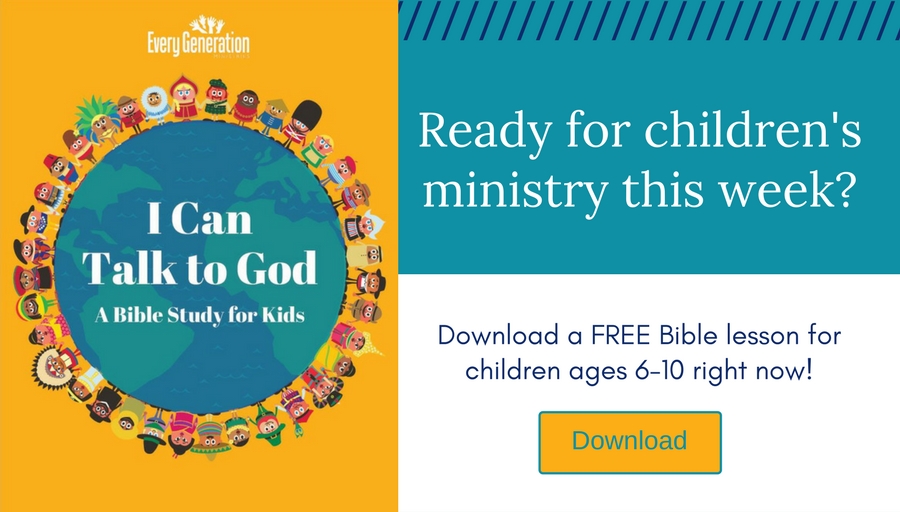
5 Ways to Make the Bible Come Alive for Kids
Teaching kids the Bible is most successful when woven into their experiences.
We may have heard numerous sermons on prayer. But it often isn’t until we are in a difficult situation and seek God’s guidance and help that we experience the truth of God’s Word.
Children are no different.
It is in the everyday experiences of life — lying down and rising up and walking along the road — that we embed God’s Word into our hearts (Deuteronomy 6:7). This is a hallmark feature of the Deuteronomy teaching and a distinct piece of EGM’s approach to children’s ministry.
Unfortunately, the tendency of children’s ministry leaders is to adopt the educational methods of the schools around them. This places the focus in church on cognitive learning. Skills like memorizing Bible verses, answering questions with right answers, and knowing Bible information are prized.
Emphasize heart transformation over knowledge when teaching kids
Deuteronomy 6 and the teaching of Jesus stand in contrast to this traditional schooling model. They place emphasis on truth, life, experience and action — woven together with a transformed heart.
Teaching kids must be intertwined with what they experience every day. Children’s ministry leaders seek to create activities that take learning beyond cognitive exercises. Boys and girls must experience the feelings associated with the objective of the Bible lesson. This helps them make a connection between what God’s Word says and how that affects their everyday lives.
[socialpug_tweet tweet=”Children must experience the feelings associated with the objective of the Bible lesson.” remove_url=”yes”]
Talking and hearing are valuable pieces of the learning process, but it is experience that has a lasting impact.
5 Tips for teaching kids with an experiential activity:
- Involve the children’s senses – hearing, seeing, smelling, touching and tasting.
- Plan with care. An experiential activity involves a child’s feelings. Understanding frustration, impatience, confusion, etc. may be important aspects of the Bible truth, but they have to be managed carefully.
- Make sure the experiential activity involves all of the children. However, nobody should be forced to participate.
- Keep in mind that an object lesson is different than an experiential activity. An object lesson uses a practical example to teach a Bible truth, but it does not allow children to experience the emotion connected to that truth.
- The experiential activity must be explicitly connected to the Bible truth. Otherwise, it is just a fun activity. Download the “I Can Talk to God” Bible Study to see an example of “connecting questions” and a “connecting statement” designed to link the experience to the truth.

